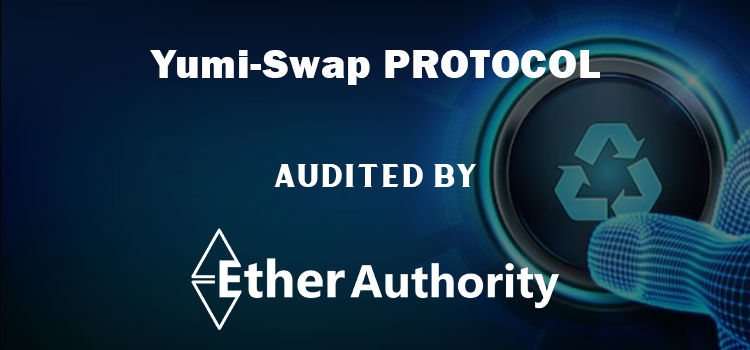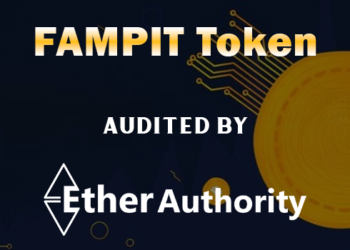Yumi Swap Smart Contract Audit: A Deep Dive into Security & Architecture
EtherAuthority published a thorough audit of the Yumi-Swap smart contracts, examining both their architecture and security posture. This article breaks down their findings and what they mean for users, developers, and investors interested in decentralized finance (DeFi) projects.
What Is Yumi-Swap?
Yumi-Swap is a DeFi protocol with multiple smart contract functionalities:
- Pool management (add/set pool)
- Pair operations (addPair, setPair)
- Token economics (mint, burn)
- User operations (deposit, withdraw)
- Governance and tracking (getPriorVotes, getChainId)
- Value exchange (swap) and participation (enter, leave)
These functions indicate that Yumi-Swap aims to offer a full suite of yield farming, trading, and governance tools commonly found in AMMs (Automated Market Makers).
Methodology of the Audit
EtherAuthority used a combination of automated tools and manual review to evaluate Yumi-Swap:
- Slither for static analysis
- Solhint for coding standard enforcement
- Remix IDE for interactive debugging and manual testing
The manual audit included human review of logic flows, permission checks, and potential vulnerabilities outside the reach of automated detection.
Key Findings & Security Levels
Security Grade: Secured with Limited Centralization
EtherAuthority categorized Yumi-Swap as “Secured”, which means no critical flaws were discovered. However, the audit also noted that the contracts retain owner control features, meaning full decentralization is not achieved.
Issue Levels:
- Critical: 0
- High: 0
- Medium: 0
- Low: 1
- Very Low: Several
The low-level issue doesn’t threaten core security but should be addressed to enhance robustness. The very low issues are more about best practices, code hygiene, gas optimizations, etc.
| Stakeholder | What this means |
| Users / Liquidity Providers | Funds appear safe from major exploits. Be mindful that some control still rests with the contract owner. |
| Developers / Auditors | Clean code base overall, though there’s room for tighter decentralization and eliminating even low-severity issues. |
| Investors | The lack of medium or high-severity issues is encouraging, but centralization risks might impact long-term trust. |
What’s Next for Yumi-Swap
To further improve, the team might:
- Reduce owner powers or move critical rights into multisigs or governance mechanisms
- Patch the identified low and very low issues (gas inefficiencies, minor permission checks)
- Continue periodic external audits to ensure that new features don’t reintroduce vulnerabilities
Conclusion
The EtherAuthority audit confirms that Yumi-Swap smart contracts are fundamentally secure, with no major or medium-severity vulnerabilities. While not fully decentralized, the architecture is solid, and the identified issues lean more toward optimization and best practices. For a DeFi protocol, this is a strong starting point. As with all projects, ongoing transparency, responsible governance, and continuous audits will be key to sustaining trust.
Safeguarding your digital journey—EtherAuthority serves communities, corporations, and enterprises alike. Email us at contact@etherauthority.io
Audit Report in PDF: Yumi Swap Smart Contract Audit-Report
Discover more: Twitter | Website | GitHub | Telegram | Facebook | YouTube | Fiverr
























